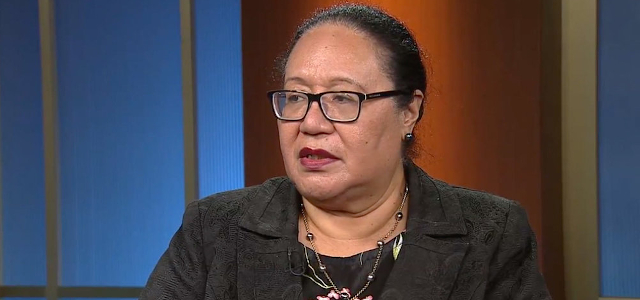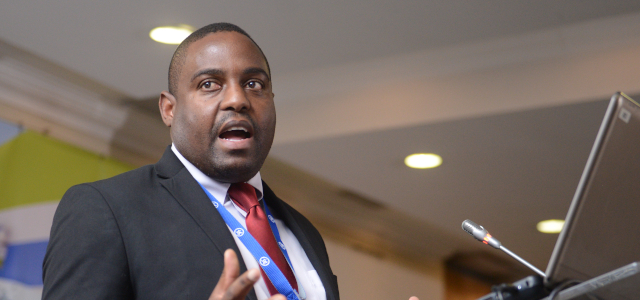On 9 June 2020, the Global Water Partnership joined the in-coming COP 26 President (UK), COP 25 President (Chile) and NAP Champion in calling for the international community to increase ambition on adaptation and include climate resilient water security in COVID-19 economic recovery plans. The call was made during a special session convened by the United Nations Framework Convention on Climate Change (UNFCCC) on “Advancing NAPs and climate-resilient recovery under COVID-19” , to discuss advancing NAPs during the existing COVID-19 era. The objective of this special webcast was to garner, from NAP Champions, ideas and views on accelerating adaptation planning and resilience-building during COVID-19 recovery.
As governments embark on recovery efforts to the devastating impacts of COVID-19, it is important that such efforts build upon and contribute to resilience-building to climate change. The National Adaptation Plan (NAP) process is an important way that countries can build their resilience to these climate change impacts while at the same time addressing multiple development objectives including on food security, health, water and other key areas. COVID-19 has made it clear just how interconnected our social, economic and environmental challenges are. Like many similar risks, the impacts of the pandemic are greater on the already vulnerable members of society, further widening their vulnerability to other existing and new risks.
In her keynote address, Ms. Fekitamoeloa Katoa ‘Utoikamanu, NAP Champion, Under-Secretary-General (USG) and High Representative for the Least Developed Countries(LDCs), Landlocked Developing Countries(LLDC) and Small Island Developing States(SIDS), expressed concern over the COVID-19 pandemic and its exacerbating impacts on the multiple vulnerabilities of the LDCs, SIDS and LLDCs .
“The LDCs, SIDS and LLDCs have the most fragile health systems and the scarce domestic resources meant for national Sustainable Development Goals (SDGs) implementation are now being diverted towards plans to address emergency needs arising from the COVID-19 Pandemic”, she said.
She stressed that global efforts to address the impacts of COVID-19 in the most vulnerable countries must be viewed through the lens of building climate change resilience. Moreover, she underscored the need for country-level policy responses to the COVID-19 to factor in climate resilience considerations, noting that the COVID has exposed the need for strengthening the capacities of LDCs, SIDS and LLDCs in project preparation.

Ms. Fekitamoeloa ‘Utoikamanu, NAP Champion, USG and High Representative for LDCs, LLDCs and SIDS
While the Corona virus has negatively impacted on the process of accessing funds and implementing adaptation activities, important work of NAP preparation and roll-out cannot be put on hold, but rather be treated with urgency.
Mr. Archie Young –United Kingdom UK : Incoming 26th session of the Conference of the Parties (COP 26 ) Presidency), bemoaned the far-reaching effects that shocks such as the COVID-19 can have on health, economies and future livelihoods. He cited the effect of the pandemic on the COP 26, which has been postponed due to the uncertainties created by the COVID.
“The COP 26 has been postponed to November 2021 but climate change will not wait, and action gets more urgent by the day”, he said. “Through our incoming COP Presidency, we will advocate for increased availability, efficiency and accessibility of adaptation and resilience finance”.
A member of the NAP Technical Working Group, Global Water Partnership Southern Africa (GWPSA) Executive Secretary and GWP Head of Climate Resilience, Mr Alex Simalabwi, called upon the international community to urgently mobilise political commitments towards the inclusion of adaptation in COVID-19 recovery plans.

GWPSA Executive Secretary and GWP Global Head for Climate Resilience, Mr Alex Simalabwi
“The COVID- 19 may be temporary, but climate change and its impact continue to increase. It is therefore imperative to scale up climate finance and increase investments in water management, renewables, green technologies and climate change adaptation”, he said.
He avowed GWP’s commitment to supporting at least 30 countries access climate and leveraging at least $1 billion by 2025. He further affirmed GWP’s pledge to mobilise partners on climate resilience through the Water Change Makers Awards to support LDCs develop integrated NAPs.
In December 2019, GWPO was accredited to the GCF as a Delivery Partner of the GCF Readiness and Preparatory Support Programme (the Readiness Programme), to support countries in preparing readiness proposals for submission to the GCF. In March 2020, the GCF approved Zambia’s proposal for advancing its NAP process with USD 2.2 million over 3 years, with GWP as Delivery Partner, providing technical support to the Zambian Government. GWP was highly instrumental during the proposal preparation stage and contributed immensely to ensuring that Zambia secures this support.
